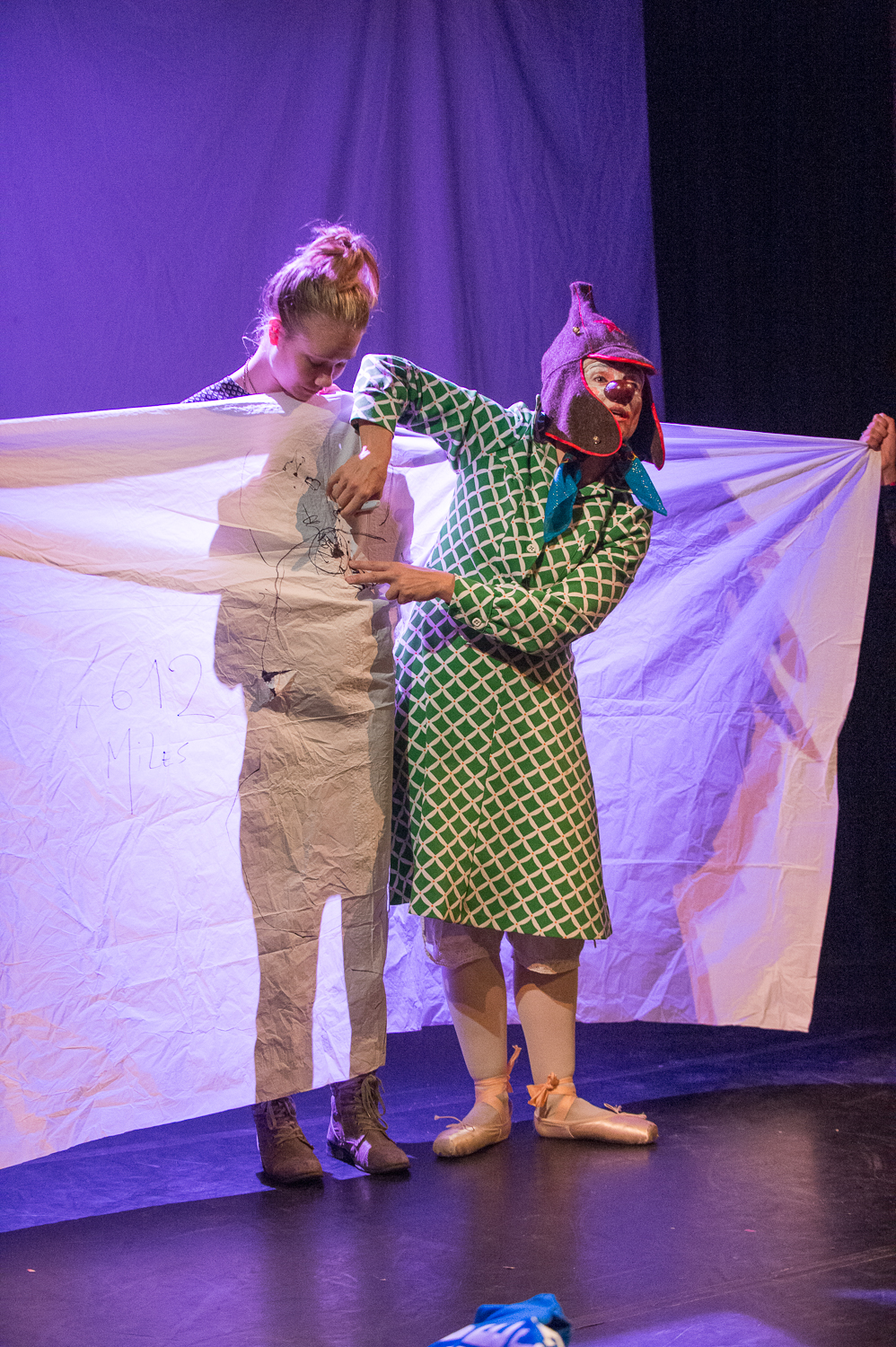Tuesday
Sep232014
Purpose and Politics
 My Honeymoon in Chernobyl, photo by Ian DarsonDo clowns have a purpose? Those of you who are old enough may understand what happens as you begin to glimpse mortality.On occasion at least, the inclination to cling to this narrow self drops away and we begin to consider what we transmit to the ever-changing world in which we have such a teeny cameo. Whether or not we plan it, we do transmit, and so it is with clowns, but some use the platform to show us something important. While they have our attention, they slip in a political lesson or show an unusual perspective on something we barely notice. Laughter creates the opening for wisdom to enter.
My Honeymoon in Chernobyl, photo by Ian DarsonDo clowns have a purpose? Those of you who are old enough may understand what happens as you begin to glimpse mortality.On occasion at least, the inclination to cling to this narrow self drops away and we begin to consider what we transmit to the ever-changing world in which we have such a teeny cameo. Whether or not we plan it, we do transmit, and so it is with clowns, but some use the platform to show us something important. While they have our attention, they slip in a political lesson or show an unusual perspective on something we barely notice. Laughter creates the opening for wisdom to enter. Last week at the NY Clown Theatre Festival, I saw three shows that transmitted deep lessons in different ways. In the most explicit, Bober, a seemingly innocent clown from France, took us on a tour through Chernobyl and told the story of how a moment of obedience to authority changed the world forever. She made her entrance in classic clown costume, with apologies, misusing English, asking for help and endearing herself to the audience with her open and loving face. Calling up young volunteers born before the accident, she had a great deal of trouble explaining what she meant by "born" and had to keep acting it out. Then, with her helpers and a huge piece of paper, she drew a map so we could locate ourselves in relation to Chernobyl, making it clear in the most adorable way that we Americans are pretty clueless about what goes on outside our borders. As she went deeper into her tour, she danced with beautifully photographed slides and video taken from her trip to Chernobyl. With each shift, Bober stripped or changed clothing, and subtly seemed to gain authority. By the end she was in a red dress and high red heels, either strutting or planted firmly on a chair demanding and answering questions. I suppose this could be off-putting. I heard one woman in the audience say "Can we leave now?" But most of us followed her transformation, and were transformed by it, chastened and empowered and ever so much more curious than we were.
In a more subtle turn, Z Smith showed us a homeless clown, Pompo, wrestling with the loss of her dear friend Pipo, embodied on stage by a beloved urn. Denial in a clown is quite entertaining of course. As she throws a birthday party, we are engaged, laughing and singing and holding up balloons (trash bags), so when she finally comes face to face with Pipo's absence, and realizes she is alone, we feel it. But the story line isn't the only lesson here. The hobo clown is a stock character, an outsider to society, free to play and comment, but Pompo isn't just a cutie in misfitting clothing; the stage is filled with recognizable homeless paraphernalia--grocery carts, cardboard, trash and old bottles, along with the odd ukelele. We can turn away when we see it on the street, but here we are captive while Pompo, realizing she has nothing to eat, brilliantly mimes her breakfast. Watching her elaborate antics, I was laughing and yet quite aware of the hunger that motivated the mime. The context of homelessness was in the background, so we just absorbed it, unable to resist.
And finally, in the most hilarious show I've seen at the fest, Audrey Crabtree brought a fascinating character to life as she hosted the weekly Cabaret. Deenie Nast is a hard-drinking, pill-popping, attention-grabbing former star of some kind. One of my favorite of the many stomach-clutching, tears-from-laughing moments was when she insisted she could fit into her tiny red shorts from years ago, and demanded significant assistance to zip them up and then stand, like a plank, because there was really no room for movement. The multi-talented Deenie also sang winningly in a warble reminiscent of Stockard Channing, perhaps with a shot of Ethel Merman, coming back to a refrain of "it's always been me." Clinging to youth and fame, wildly funny and wretchedly recognizable, Audrey showed us the particular suffering of the aging female who ridiculously denies the change that is so plain to see. Laughing with her, we loved her even as we knew it wouldn't end well for her. Probably not for us either, but what the hell!
This Friday, there is a surprise show by Amy Gordon on the topic of shame, an exemplar of virtuosic, very funny, feminist physical theatre. Her show plays between two others that are bound to be fascinating, Big Shoes, Short Tales, and Life After Death. I can't wait.
(Related posts: PsychoZen of Clown, Failure and Freedom, For the Love of Clowns, Truth! What is it?, Demons and Death)

 Share Article →
Share Article →
Reader Comments (1)
So much of what you write about - and how you write about it - rings true. Many-layered, full of passion and compassion. Some of us might have wished for a picture of the author in her clown identity.....?